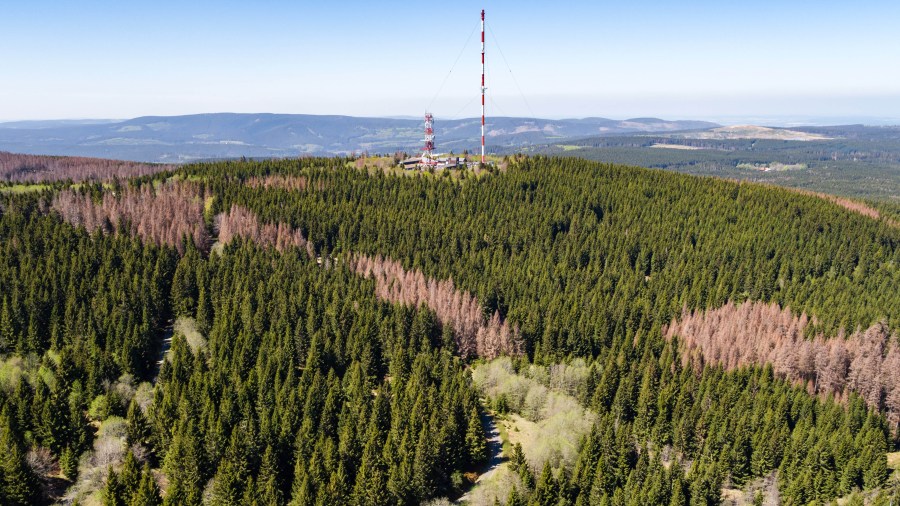Climate change isn’t going anywhere, and investment could soon rise

While people around the country deal with the COVID-19 pandemic and protest for police reform and racial justice, the climate is continuing to change. The U.S. just experienced the warmest May on record. A U.N. report last week warned that mass extinctions are happening far faster than expected. While climate change solutions are on the back burner for now, they’re as urgent as ever.
As part of our ongoing series “How We Survive,” we’ve been looking at how technology can help us adapt to climate change. I wondered, if you’re an investor focused on climate tech, how are things going? I spoke with Seth Bannon, a founding partner at the venture firm Fifty Years. The following is an edited transcript of our conversation.

Seth Bannon: The human and economic tragedy of COVID-19 has shown pretty clearly the dangers posed by natural systemic disasters. This pandemic has shown the dangers of ignoring science. I think we’ll see a surge of interest for sustainability initiatives and investments in the wake of this pandemic because of those things. Embracing that science will lead to resiliency and profit. And ignoring it will lead to fragility and downfall. Citigroup launched a new arm within its investment banking division that will be dedicated to sustainability. They specifically said COVID-19 has increased interest in their client base in sustainable and resilient strategies.
Molly Wood: So part of it could be helped along by the recognition of what true disaster looks like, right, which was abstract maybe for a lot of people before this?
Bannon: Absolutely. I mean, even with pandemic preparedness, people have been saying, hey, there are some investments we can make. They might cost a few billion dollars, but they’ll pay back tenfold if a pandemic ever comes. Regulators and investors and even, in some cases, people in academia didn’t make those investments and we’re paying the price now. I think the parallels to the climate crisis are pretty clear. We know what investments we should be making. We haven’t been making them because some of them are hard and some of them are expensive. I think this is a pretty big wake-up call, in terms of the value of making those investments.
Wood: It seems likely that there could also be, though, a renewed focus on public health preparedness. Do you think that there’s a risk for you, that money that might have come into climate change and resilience might now actually go toward public health resilience?
Bannon: I think in times of crisis, more money flows into the truly important things. Some of that will throw into public health preparedness, as it should. I think more will also flow into climate tech and climate preparedness. The places where less money will flow will likely be the nicest-to-have — e-commerce technology, the ad tech, the social networking sites. I think these things will likely be things that suffer, and the beneficiaries will be all the things that are truly important.
Wood: How is your fundraising going? You said you’re raising a new fund now, right?
Bannon: Yeah. We had our first close of that fund on the day The New York Times had the first graph of the unemployment numbers. That was initially going to be a $40 million close and it ended up being $20 million. Luckily, the $20 million that was supposed to close on that day didn’t disappear. Everyone said, hey, we’d like to continue to move forward to the close, but at a later date. We’re just hair on fire right now. I think for sure, the last couple of months, it’s been hard to get anyone’s attention. For VCs, there’s typically two types of investors. There’s individuals and family offices and then there’s what are known as institutional investors. That [latter] group has largely pulled out of the market entirely. I think a lot of funds that might have had trouble raising in normal times just won’t be able to raise — unless of course, things magically recover and the economy is just back on track by the end of the year, which I don’t think is gonna happen.

Related links: More insight from Molly Wood
Research published last Monday in the Proceedings of the National Academy of Sciences shows that in the last 100 years, we’ve lost at least 543 species of plants and animals. Now researchers are saying 500 more could go extinct in just 20 years. The pace of extinction is accelerating. Scientists warn that mass extinctions can cause a cascade effect that can endanger human life on this planet. They point to, among other things, an increase in new diseases and pandemics.
The New York Times has a good roundtable conversation with Black environmentalists on how climate is intertwined with racial and social justice and has been for decades. There’s also an impressive reading list if you want to get yourself smarter on it all.
The future of this podcast starts with you.
Every day, the “Marketplace Tech” team demystifies the digital economy with stories that explore more than just Big Tech. We’re committed to covering topics that matter to you and the world around us, diving deep into how technology intersects with climate change, inequity, and disinformation.
As part of a nonprofit newsroom, we’re counting on listeners like you to keep this public service paywall-free and available to all.
Support “Marketplace Tech” in any amount today and become a partner in our mission.












